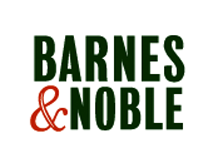
Life doesn’t come with a manual; it comes with a mother.
~Author Unknown
When a teacher called with her concerns about my daughter’s pallor and lack of energy, her comments failed to set off alarm bells. Like her two older siblings, Jill didn’t always eat right or get enough rest. When she came home from school, I asked, “Have you been feeling okay? Your teacher thinks you need to see a doctor.”
Jill let out an exaggerated sigh. “She’s crazy. There’s nothing wrong with me.”
Although I sided with my daughter, I pushed fruits and vegetables her way and grounded her from late-night phone calls.
Her teacher contacted me a week later and asked if I’d followed up with a doctor’s visit. There went my Mother of the Year Award. When she said Jill had been dozing off at her desk, I worried she’d fall asleep at the wheel.
After school, I quizzed Jill, but she slammed her book bag on the counter and yelled, “I’m NOT sick!”
Despite her protests, I called her primary physician. Suspecting mononucleosis, he ordered blood work. Results showed a low platelet count. He suggested we consult a hematologist. Although I feared the worst, I assured her it was probably nothing.
After searching the Internet for the probable causes of low platelets, Jill came to me, sobbing and said, “Mom, I have leukemia.”
I hugged her tightly and suggested other possibilities that weren’t life threatening. Tilting her chin so she could look me in the eyes, I said, “Sweetheart, I’d gladly trade you places if I could. Let’s wait and see what the experts have to say.”
The hematologist ordered a bone marrow biopsy along with X-rays to rule out an enlarged spleen. Directing her anger at me, Jill stomped out of the clinic and raced to the car. Apparently this was all my fault.
At her follow-up visit, the hematologist greeted us with good news. Jill’s test results came back negative for leukemia and her spleen was normal as well. I felt a huge weight lift off my shoulders. But when the physician revealed my daughter had a blood disease — idiopathic thrombopenia purpura, ITP, I felt as though I’d been hit by a wrecking ball. The doctor prescribed steroids and said Jill would need her platelets monitored on a regular basis. It could be worse, I thought. We can deal with this. Too bad the doctor hadn’t kept the part about prednisone causing weight gain and insomnia to herself.
On the way home, Jill freaked. “Mom, I’m not gonna take a drug that makes me fat.”
Getting her to take her pills became a daily battle. Going to the clinic for blood work was even worse.
During my routine mammogram six weeks later, a suspicious cluster of calcified cells sent me for a biopsy that revealed advanced stage III breast cancer. While the news devastated my entire family, Jill took it the hardest.
Late one night, I heard her sobbing in her room. I walked in, sat down on her bed and asked, “What’s wrong?”
“Mom, remember when you said you wished you could trade places with me?”
Hoping to convince her it wasn’t her fault, I tried humor. “Honey, I also promised to shave my head if your hair fell out from chemo.”
Her eyes opened wide at the thought of parting with her long, blond locks, but then she saw my smile. A bald forty-year-old was one thing — a teenager another story.
Already worried I might not survive a life-threatening illness, I spotted the paperwork for Jill’s high school class ring on the kitchen counter. I sat down, put my chin in my hands and released a deluge of tears as I wondered if her future would include me. My children weren’t babies like they were when I had my previous scare, but my teenagers still needed their mother. And I needed them.
Since I had the utmost confidence in my oncologist and his entire top-notch staff, I called his office to schedule an appointment for my daughter but was told he didn’t accept patients under eighteen.
At my next visit, I decided to ask the doctor myself. “Would you be willing to treat my sixteen-year-old daughter who has ITP?”
Reluctantly, he asked, “Is she mature?”
Deciding honesty was the best policy, I confessed, “If you don’t count that she rebelliously flushed her prednisone tablets down the toilet because she’d gained a little weight.”
He chuckled, but agreed to see her.
On her first visit, when Jill sat down in my chair to have blood drawn, I felt a terrible sadness. As much as I dreaded the procedure, I’d have gladly pushed her aside and rolled up my sleeve. She reminded me needles didn’t upset her like they did me. I didn’t bother trying to explain. She’d understand some day when she was a mother herself.
Jill pouted about having her platelet count checked weekly. But when the oncologist said she’d need to continue taking steroids until her numbers reached an acceptable level, she cried out, “That’s not fair!”
The two of us already knew life wasn’t fair.
On the way home, she pinched her puffy cheeks and said, “Mom, I look horrible!”
I glanced over and teased, “Chipmunk!”
She volleyed, “Baldy!”
My turn. “Don’t forget. You have an interview at JJ’s Restaurant tomorrow.” Unable to resist, I added, “With your steroid appetite, if you do get the job, you’ll most likely be fired for eating up the profits.”
“You’re right, Mom. They should hire you instead so customers won’t have to worry about finding hair in their food.”
All’s fair in love and pettiness. She threatened to stock up on my favorite candy bars the week after chemo when food remained off limits for me.
Family and friends constantly praised my wonderful attitude. What they couldn’t possibly understand was how thankful I was that it was me undergoing chemotherapy and radiation, not my daughter.
Most teenagers bonded with their mothers on shopping trips. Jill and I bonded at the cancer center where we spent the better part of a year getting blood drawn almost weekly. By the time I’d completed chemotherapy and radiation, Jill’s platelets teetered on normal. She needed her counts monitored periodically, and I had checkups occasionally as well, but our lives slowly returned to normal.
Almost two decades later, I’m still cancer-free, and Jill remains in remission. Blessed to have been there for my children’s graduations, weddings and the births of my precious grandchildren — two belong to Jill — I gladly share my story with newly diagnosed relatives, friends, and acquaintances. I tell them not to focus on the sorry hand they’ve been dealt, but on loved ones who need them. That’s what helped me survive a potentially devastating late-stage breast cancer diagnosis, and that’s what will enable them to survive as well.
— Alice Muschany —







